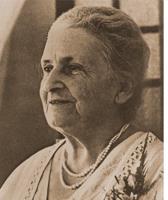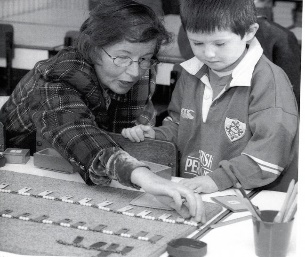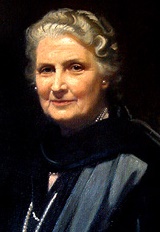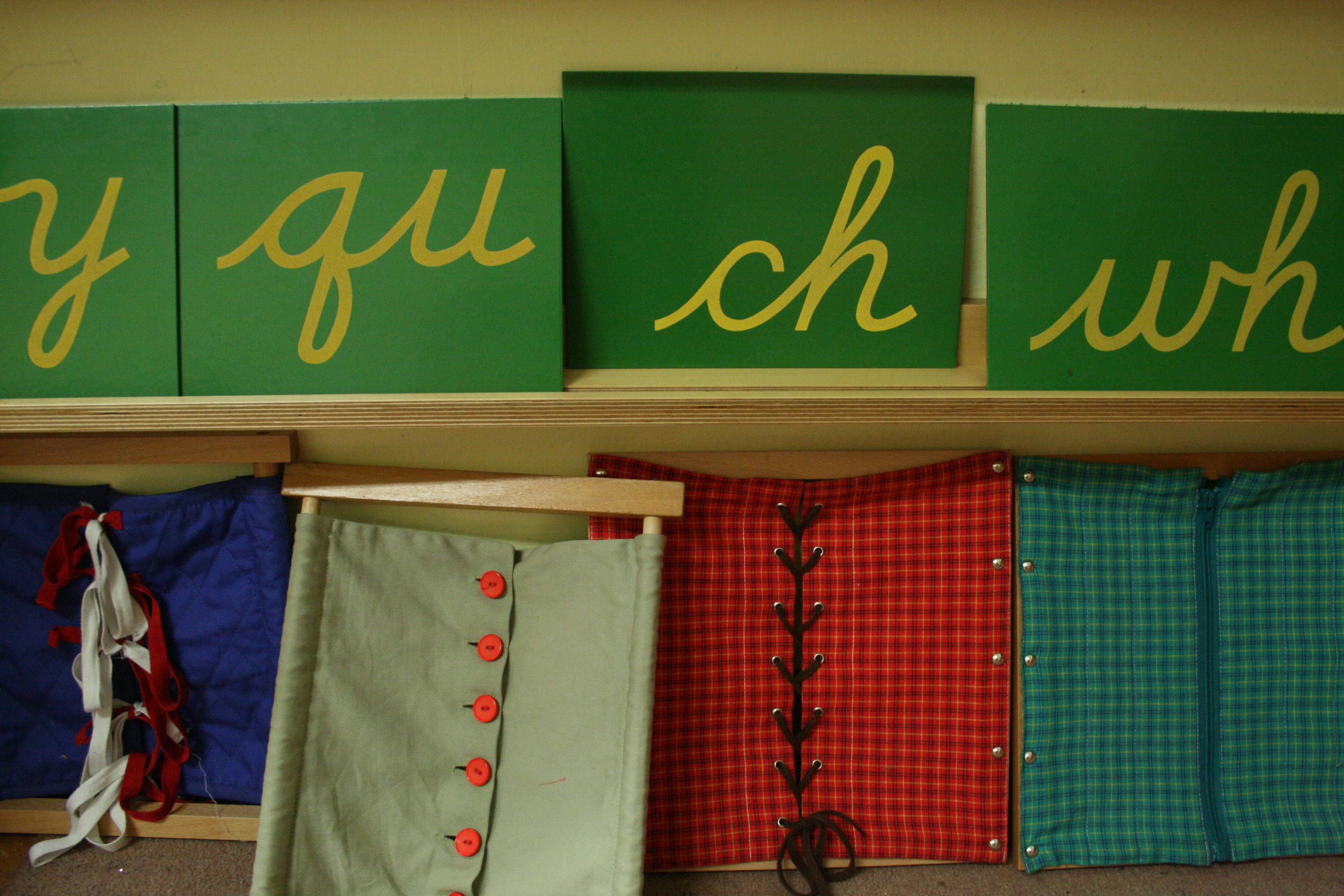About Montessori
Maria Montessori, a woman ahead of her time, was a person of great depth and insight. She was the first woman in Italy to be granted a medical degree before stepping into the field for which she is so well known – early child education. She was an ambassador for world peace; the UNICEF Charter of Human Rights and Rights of the Child were adopted directly from her work. She was thrice nominated for the Nobel Peace Prize (in 1949, 1950 and 1951) for her committed efforts on behalf of children, especially in the face of the fascism of World War II.
Her deep commitment to children led her to become a champion in the research and development of their education. Doctor Montessori concluded that children have a natural love of life and learning that needed to be nurtured, not taken for granted. This philosophy, put into practice in her first Montessori school in Rome in 1907, has become her legacy to the millions of children today in the thousands of Montessori schools worldwide.
Montessori education is centred on the child, with the Montessori “Directresses’ guiding rather than teaching. They are facilitators in the process of learning. The Montessori Directress presents the information to the child in a climate of mutual respect. By following and observing the child the Montessori Directress can recognise and respond to each child’s individual needs. Development of self-esteem, tolerance, mutual respect and concern for others are traits that are nurtured in this environment.
When you enter the Montessori school the first thing that strikes you as a parent is the secure and harmonious environment. It is this environment that is the key to developing the child’s sense of well-being.
What is different about Montessori?
The Montessori classroom does not look like any other school. Structured to encourage the child’s participation, the activities are part of a carefully planned, purpose-filled curriculum that starts the first day the child enters the school through to the day they move to Secondary School.
Montessori schools have a 3-year age range within each class; 3-6, 6-9 and 9-12 year old children. These are called ‘cycles’ and mean that the Montessori Directresses remain with the same group for the entire 3 year cycle, allowing them to truly get to know each and every child.
The Montessori Method fosters social awareness and responsibility in children allowing the child to interact with children of different ages forming a mentor style relationship. It is important to note that for a child to fully benefit from a Montessori education, a commitment to the full 3-year cycle is ideally required. This gives the child the opportunity to be in the youngest and the oldest groups in the class and this helps support the development of their confidence.
The Montessori environment supports spontaneous learning and discovery. It centres on the individual needs of children and within this environment new information is presented when the child is ready.
The aim of Montessori is to help each child ‘Develop to their full potential’. This is what we aim to do with the children under our care at The Children’s House Primary.




